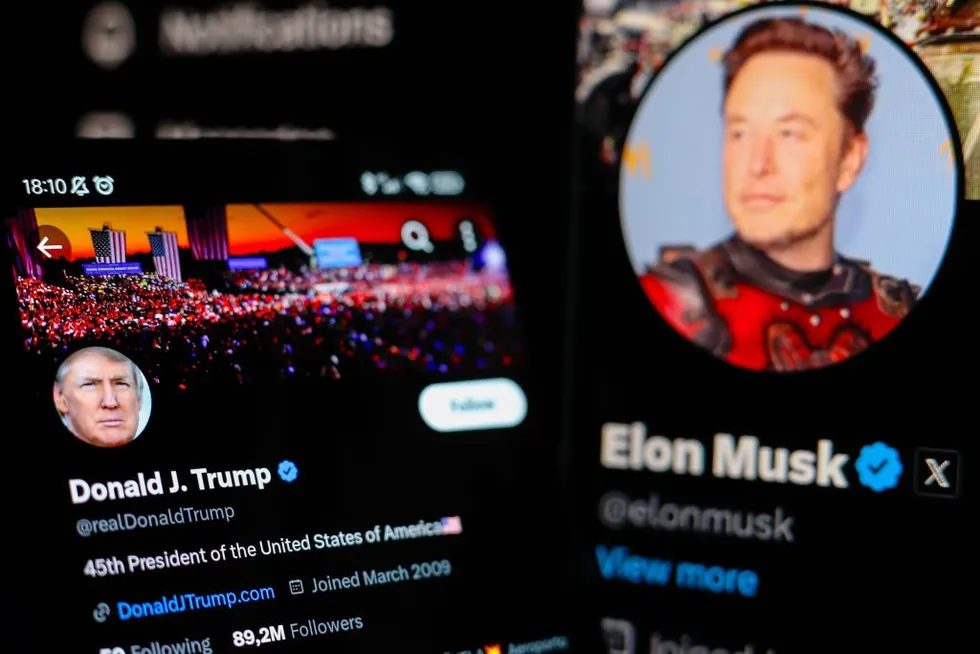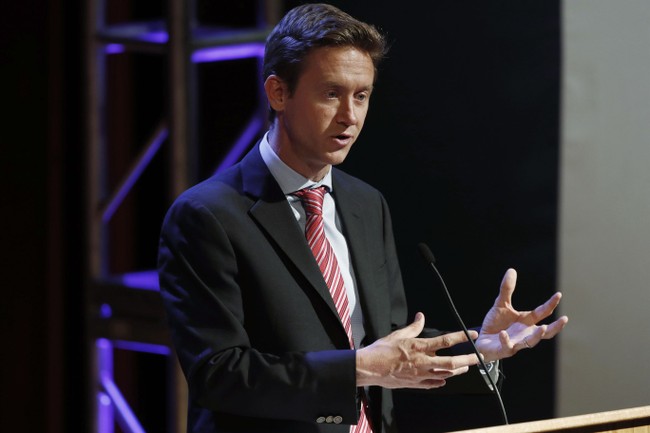Fed-up EV owners going back to gas-guzzlers

Now that Elon Musk has endorsed Donald Trump, will the presidential candidate return the favor and lay off electric cars?
Well, he won’t be driving a Model X any time soon, but Trump did recently concede to a crowd at an Atlanta rally that he’s in favor of a small percentage of American cars being EVs.
“I have to be, you know, because Elon endorsed me very strongly,” Trump added.
The slow progress has sparked condemnation from both sides of the political aisle.
While Dems continue to argue that opposing Biden’s EV push will hurt Trump with voters, those of us in the real world just hear somebody advocating for consumer choice. If you want an EV, feel free to buy one … but let the rest of us have our gas-guzzlers.
Our ranks are swelling — especially with people who went electric and regretted it.
A recent McKinsey and Company study says that nearly half of electric vehicle owners — 46%, to be precise — are likely to switch back to gas, with most of the participants citing difficulties with charging.
Here are the details: According to the consulting firm’s latest Mobility Consumer Pulse report, U.S. EV owners are the second-most likely to have signaled they intend to switch back to internal combustion engine vehicles, right behind Australia.
Respondents spanning the globe presented a wide range of reasons for switching back — with many saying charging was an issue. 35% cite that public charging infrastructure is not up to par, while 24% stated they could not charge at home. 21% noted that worrying about charging was “too stressful.”
For reasons unrelated to charging, 34% reasoned total costs of ownership were too high, 32% said that long-distance traveling was impaired by the vehicles, 16% stated they would have to change mobility requirements, and 13% stated they did not like the driving experience.
Here’s why this is important: While the report notes that global purchase intent for EVs is continuing to rise — slowly — nearly half of U.S. drivers admitted they are likely to change back to traditional gas cars.
This underlines the difficulties the U.S. and other governments will face in getting consumers to transition to EVs permanently. The report also found that building out charging infrastructure isn’t only a U.S. problem — it’s a problem for many countries looking to electrify their fleet and lower their emissions.
That said, excitement around EVs is still real. Among current non-EV owners, the share considering a battery EV or a plug-in hybrid electric vehicle has grown between three and four percentage points from December 2021 to February 2024. The number of those who want a new or used internal combustion engine vehicle has stagnated or declined within the same time period.
27% of European consumers are likely to consider a Chinese EV brand — which could prove tricky for the EU, considering it decided to impose additional tariffs on electric vehicles imported from China.
McKinsey surveyed two groups of car owners: those who own an electric vehicle and those who own gas-powered cars but have thought about buying an EV.
The survey found that 46% of Americans who own EVs are ready to switch back to owning a gas-powered vehicle. EV owners listed several reasons why they were having buyer’s remorse:
35% said there is a lack of charging infrastructure;
34% said the costs are too high;
32% said planning a long trip was becoming too difficult;
24% said they had no way of charging their car from their home;
21% said worrying about keeping their vehicle charged was becoming too stressful;
13% said they did not enjoy the comfort when driving their EV.
That number shocked Philipp Kampshoff, the leader of the McKinsey Center for Future Mobility, who said he’d assumed “once an EV buyer, always an EV buyer.”
The McKinsey survey found owners of gas vehicles won’t buy an EV for these reasons:
45% said electric cars are too expensive;
33% had concerns about charging them;
29% said they had range anxiety on how far the car could go before charging it again;
58% said there was no way they were ditching their current vehicle;
53% of electric car owners said on their next car purchase, they would trade down;
18% admitted their skepticism of electric cars because they enjoy driving their gas-powered cars.
The other countries included in the survey were Brazil, China, France, Germany, Italy, Japan, and Norway. Across all countries surveyed, the average share of respondents who want to ditch their EVs was 29%.
U.S. Democrats passed infrastructure legislation in 2021 that committed billions of taxpayer dollars to building a half-million charging stations in the U.S. by the end of the decade. But three years later, only seven federally funded chargers have been built to date, and the slow progress has sparked condemnation from both sides of the political aisle.
Rather than forcing the market to adapt to a government-mandated technology, the government should let innovation and competition drive the adoption of EVs. This will lead to more efficient and cost-effective solutions rather than a top-down approach that will ultimately fail.







